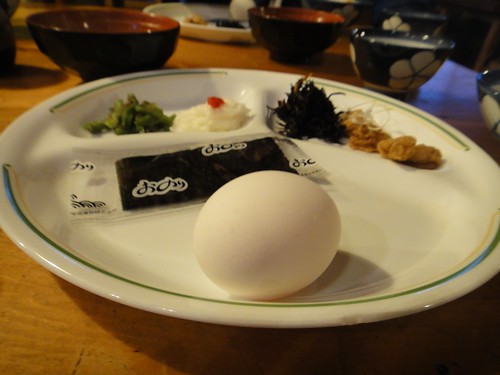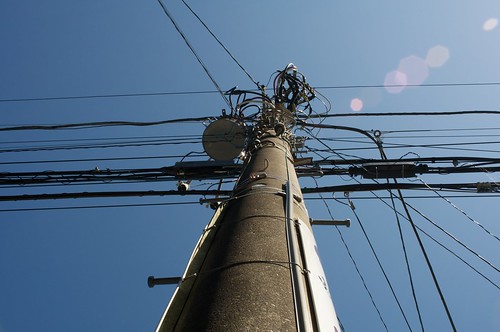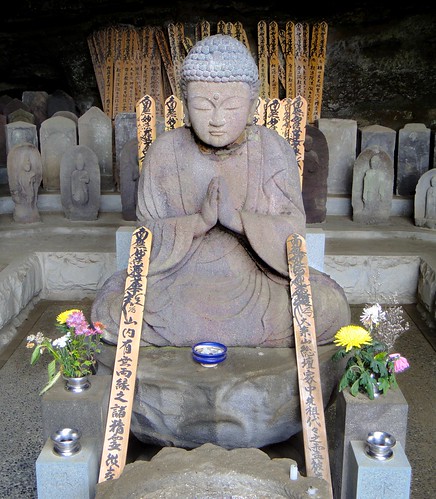...and it's in English. Or so it seems, in some ways at least.
Recently,
two major Japanese companies have announced that their official language for business - even internally - will be English. (I'm not entirely sure why this is headline news, as several other companies have already adopted this policy some time ago, but never mind about that.) They are both trying to break into international markets, so the potential benefits are pretty big (not denying that there will of course be disadvantages too, given the poor English language skills throughout the population here). English language education is also
being introduced at earlier stage in education. That's over the howls of the nationalists, of course, who argue that the children will be "confused" by this and that English should be left until they are more secure in their Japanese.
From their own parochial and reactionary point of view, I wonder if they may have a reason to be fearful. For while all the research I have read indicates that bilingualism is easily instilled at an early age, and that starting early does not harm understanding of the "mother" tongue, there is
also interesting new research showing how patterns of thought are shaped by language. In that study, it was found that people who learnt (as children) a primitive sign language which did not include clear concepts of relative position (left and right, under/over etc), performed much worse in tests of spatial communication than those who learnt a later version of the language which did.
So it is not implausible that learning only Japanese could be a factor which contributes towards ensuring that children learn to think only as Japanese.
We have been amused in management meetings where everyone is rattling along in Japanese, interspersed with words like "management" and "communication". It's a cheap shot to say well, the Japanese language obviously does not include these concepts. And only
partly true. More accurately, these words are used to mean the Japanese version of what the original concept was, which may bear little relation to what we would expect. Like a "diet", for example - which includes anything related to exercise, as well as a reduction in calorie intake itself. And "smart" means slim. Once, someone here (well-educated, with overseas experience) proudly described the Japanese funding arrangements as "very democratic", because all of the senior sensei were given reasonably equitable budgets to disperse as they saw fit among their minions.
No, that is not "
democracy", it's a
feudal hierarchy. But confusion between the two might explain rather a lot about Japanese politics.
The lack of distinction between "right" and "privilege" is also notable IMO. Here, we are allowed to do whatever the Govt allows us to do. And
it doesn't matter if we understand the law, so long as we obey it.
So I wonder what would happen if a generation of genuinely bilingual Japanese children grow up with a facility to understand and debate the differences between rights and privileges, or democracies and feudal hierarchies. It could make for interesting times. No wonder the reactionary bigots are against it.
Meanwhile, JAMSTEC is still bravely holding back the tide of English, Canute-like. This makes it very easy to ignore the deluge of administrivia that fills my email inbox. Long may it continue!




















